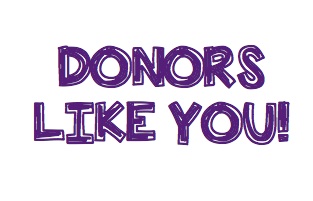Molly's Desk: On "Angels in America, Part One"
/By: Molly McFadden
Any debate about what this play means or does not mean for Broadway seems, in the face of the work itself, completely beside the point. Angels in America speaks so powerfully because something far larger and more urgent than the future of the theater is at stake. It really is history that Mr. Kushner intends to crack open.
—Frank Rich, the New York Times, May 5, 1993
When you write you can not go quietly into the night and be meek as to what you wish to say. As Tyler has said in StageWright class, “If it were easy everyone would do it.” It is not easy and after seeing this production of Angels in America at Ensemble Theatre I wonder about my journey.
What, of my play I am working on, has anything to do with the realities and struggles of people today? In other words, who cares?
You must not use a small paint brush to outline your vision or translate your tiny whispers. No, you must be bold with your convictions and believe what you have to say is vital. Today we toss around the slogan of encouragement, “OWN IT,” but in the 80s and 90s, I don’t ever remember that terminology being used to encourage those in the arts. This magnificent production of Angels left me enthralled and loving every single moment. I have been thinking about this play and I was humbled. Mr. Kushner does in fact OWN IT.
In 1988, Tony Kushner began writing his play Angels in America: A Gay Fantasia on National Themes. He wanted it to be about gay men, the AIDS crisis, and Mormonism … and he knew there was an angel in it. He was also choosing to write about what was then the very recent past. AIDS was so horrible, it was so horrible, it was a lethal diagnosis. You went from lesions to death, and people were afraid to sit on toilet seats, and people with AIDS were so vilified.
The easy thing would have been to turn away and write about a lighter topic, but not Kushner. One of his outstanding talents is his intellect, and he looked at the attacks on his community and set out to write a play that would offer comfort, inspiration, and even hope to a generation of people.
I was interested and intrigued with the beginnings of this project for Mr. Kushner. The play premiered in the tiny Eureka Theatre in San Francisco’s Mission District. Within two years it had won the Pulitzer Prize and began a New York run that would dominate the Tony Awards two years in a row. Revitalizing the nonmusical play on Broadway, Angels in America changed the way gay lives were represented in pop culture. Millennium Approaches and Perestroika, put gay men at the center of American politics, history, and mythology at a time when they were marginalized by the culture at large and dying in waves. Mr. Kushner wrote it—and rewrote it, and rewrote it, and rewrote it again.
Nothing comes easy.
In an interview - Tony Kushner shared his journey and struggle with this epic piece saying, “I got sort of stuck after I finished. All the characters had behaved and obeyed the outline that I had written. I didn’t know what to do next, and for the first time ever I asked one of the characters to explain to me what the play was about. I picked Louis because he was sort of the most like me—at least demographically. “What is this play about?” and then just started writing. And the first thing he said to me was, “Why is democracy succeeding in America?”
My husband and I lived in New York during the 70s and through the 90s, and I recall the syndrome being called the “gay cancer.” Fundamentalist preachers were only too happy to call it a punishment from God; people were calling for quarantines of gay men; people were terrified that you could catch it from public restrooms.
Back in the 80s, William F. Buckley – a tweedy scholarly man considered the leading intellectual of the Right – said that people with AIDS should be tattooed both on the forearm (so needle-sharers would be alerted) and on the ass (so gay men would be alerted during sex). He suggested this seemingly in all seriousness, apparently not realizing that visibly tattooing people would put them at risk of being attacked, and seemingly also blind to the resemblance to the serial numbers tattooed onto the arms of people who had, two generations earlier, been rounded up and thrown into Jewish concentration camps. But are we so different today ... not really when you see what is happening in Washington.
Now that the AIDS crisis has receded, and gay civil rights have become standard in Western countries, perhaps a seven-hour play about gay life in Ronald Reagan’s America might risk looking anachronistic.
But for me, the many subplots of Mr. Kushner’s kaleidoscopic work at Ensemble Theatre, from performative vulnerable masculinity to conflicts within the progressive movement, are still fresh today.








